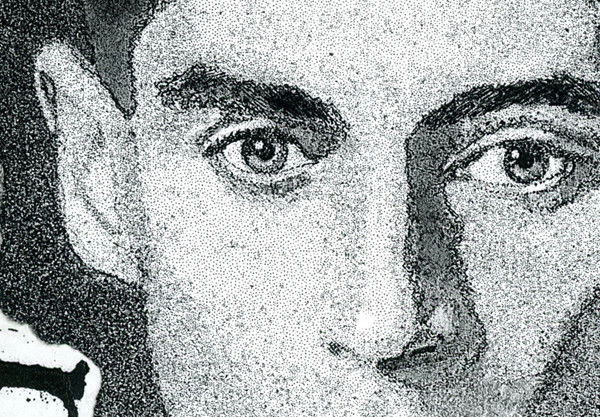1912.
23 September: This story, “The Judgement,” I wrote at one sitting during the night of the 22nd-23rd, from ten o’clock at night to six o’clock in the morning. I was hardly able to pull my legs out from under the desk, they had got so stiff from sitting. The fearful strain and joy, how the story developed before me, as if I were advancing over water. Several times during the night I heaved my own weight on my back. How everything can be said, how for everything, for the strongest fancies, there waits a great fire in which they perish and rise up again. How it turned blue outside the window. A wagon rolled by. Two men walked across the bridge. At two I looked at the clock for the last time. As the maid walked through the ante-room for the first time I wrote the last sentence. Turning out the light and the light of day. The slight pains around my heart. The weariness that disappeared in the middle of the night. The trembling entrance into my sisters’ room. Reading aloud. Before that, stretching in the presence of the maid and saying, “I’ve been writing until now.” The appearance of the undisturbed bed, as though it had just been brought in. The conviction verified that with my novel-writing I am in the shameful lowlands of writing. Only in this way can writing be done, only with such coherence, with such a complete opening out of the body and the soul. Morning in bed. The always clear eyes. Many emotions carried along in the writing–joy, for example–that I shall have something beautiful… — Franz Kafka
God! Kafka makes writing seem like a strange kind of labor. He makes writing seem like possession. Right? Something enters into the writer. A demon? A ghost? A god? Whatever it is, it enters and suddenly time, darkness, the body, everything disappears in order that nothing but writing can take place. Yes, it’s all very Romantic. But it’s also pretty hardcore stuff and a compelling take on the actual labor of writing. Writing as possession, as madness. The madness of believing that nothing in that instant exists but the urgency of writing. Kafka ends up with a mix of exhaustion, delirium, and joy. But isn’t that what climaxes are all about? The truth, though, is that this strong creative impulse was not an everyday thing for Kafka. He had a pretty nice share of writerly frustration. Writing for Kafka was hard and painful work. He often fell into despair for not writing when and how he wanted to. What struck me when I first read Kafka’s diaries was the way writing seemed so much a kind of suffering. His obsession for writing made him obsess about not being able to do it the way he liked, as the quotes below show. But the thing though is that whether Kafka hated was he wrote or bitched about not having time to write, he was always writing. I guess the truly great writer keeps on writing beautifully no matter what–whether in the instant of creative abundance or the long and annoying duration of drought.
1915.
January 4: Great desire to begin another story; didn’t yield to it. It is all pointless. If I can’t pursue the stories through the night, they break away and disappear.
January 18: …Began a new story; I was afraid I should spoil the old ones. Four or five stories now stand on their hindlegs in front of me like the horses in front of…the circus ringmaster, at the beginning of the performance.
February 9: Wrote a little today and yesterday. Dog story. Just now read the beginning. It is ugly and give me a headache. In spite of all its truth it is bad, pedantic, mechanical, a fish barely breathing on a sandbank….
February 10: …My writing, which as been coming along for the past two days, is interrupted, who knows for how long a time. Absolute despair.
Click HERE to read a Kafka story.
Post and feature images via John Dyess









Pisanje diplomskog rada i 12 najčešćih grešaka - indeks.hr October 26, 2022 19:58
[…] u pisanju nisu rijetkost: Franz Kafka, iako književni autor, poznat je po svojim blokadama o kojima je i pisao dnevnik. Ali, tzv. spisateljska blokada brzo preraste u […]